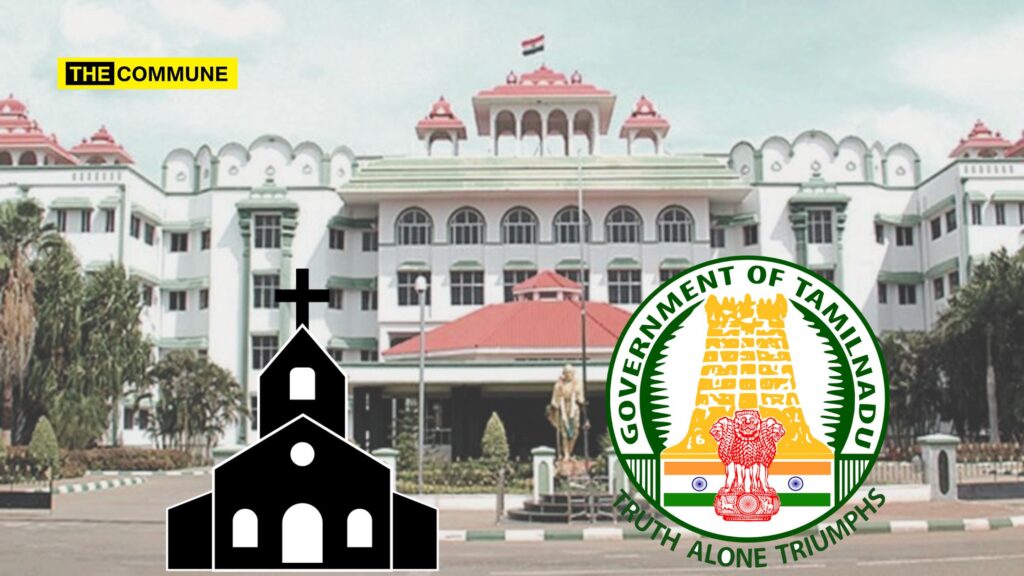The Madurai bench of the Madras High Court recently underscored India’s commitment to secularism, emphasizing the need for the State to treat all religions equally.
Justice GR Swaminathan noted that under Section 22-A of the Registration Act, 1908, which deals with the ‘refusal to register certain documents,’ properties owned by churches do not receive the same legal protection as Wakf properties or those managed under the Tamil Nadu Hindu Religious and Charitable Endowments Act, 1959.
Justice Swaminathan expressed concern over the unlawful alienation of church properties, stating, “I have personally come across quite a few cases wherein church properties have been illegally and unlawfully alienated.” He pointed out the inconsistency in the Registration Act, which protects properties under Hindu and Islamic laws but excludes church properties. He suggested that this disparity exists because specific legislation covers Hindu and Wakf properties, while similar laws for church properties are absent.
Justice Swaminathan proposed that “the time has come to include church properties within the scope of Section 22-A of the Act.” These remarks were made during a writ petition filed by Shalin, who challenged the Sub Registrar of Tiruppathur in Sivagangai District for refusing to register a property he had purchased.
The Sub Registrar argued, citing a 2017 High Court ruling, that properties endowed to the Tamil Evangelical Lutheran Church (TELC) require High Court permission for registration. The Special Government Pleader supported this position, urging the court to dismiss the petition.
However, the single judge bench clarified that the 2017 ruling was an interim order and emphasized that such orders do not extend beyond the conclusion of the main writ petition. The court noted there is no current standing order preventing the registration of TELC properties. The bench considered whether Section 22(A)(1) of the Registration Act, 1908, applied in this case. It observed that Section 22-A covers immovable properties belonging to religious institutions under the Tamil Nadu Hindu Religious and Charitable Endowments Act, 1959, and Wakf properties under the Wakf Board’s jurisdiction.
The court noted that the petitioner had purchased the property from Vijaya, who acquired it through a settlement deed from M Premkumar Prithviraj, who had originally purchased it from TELC. Both the sale deed to Prithviraj and the settlement deed to Vijaya were registered, and the revenue records were updated accordingly.
Given these circumstances, the bench concluded that the impugned order should be set aside. The court allowed the petitioner to re-submit the document to the Sub Registrar, directing the latter to entertain and register it.
(With Inputs From Law Beat)
Subscribe to our channels on Telegram, WhatsApp, and Instagram and get the best stories of the day delivered to you personally.

